THE TRIAL IN GEORGE FLOYD'S DEATH IS SET TO BEGIN IN MINNESOTA, HERE'S WHAT TO EXPECT
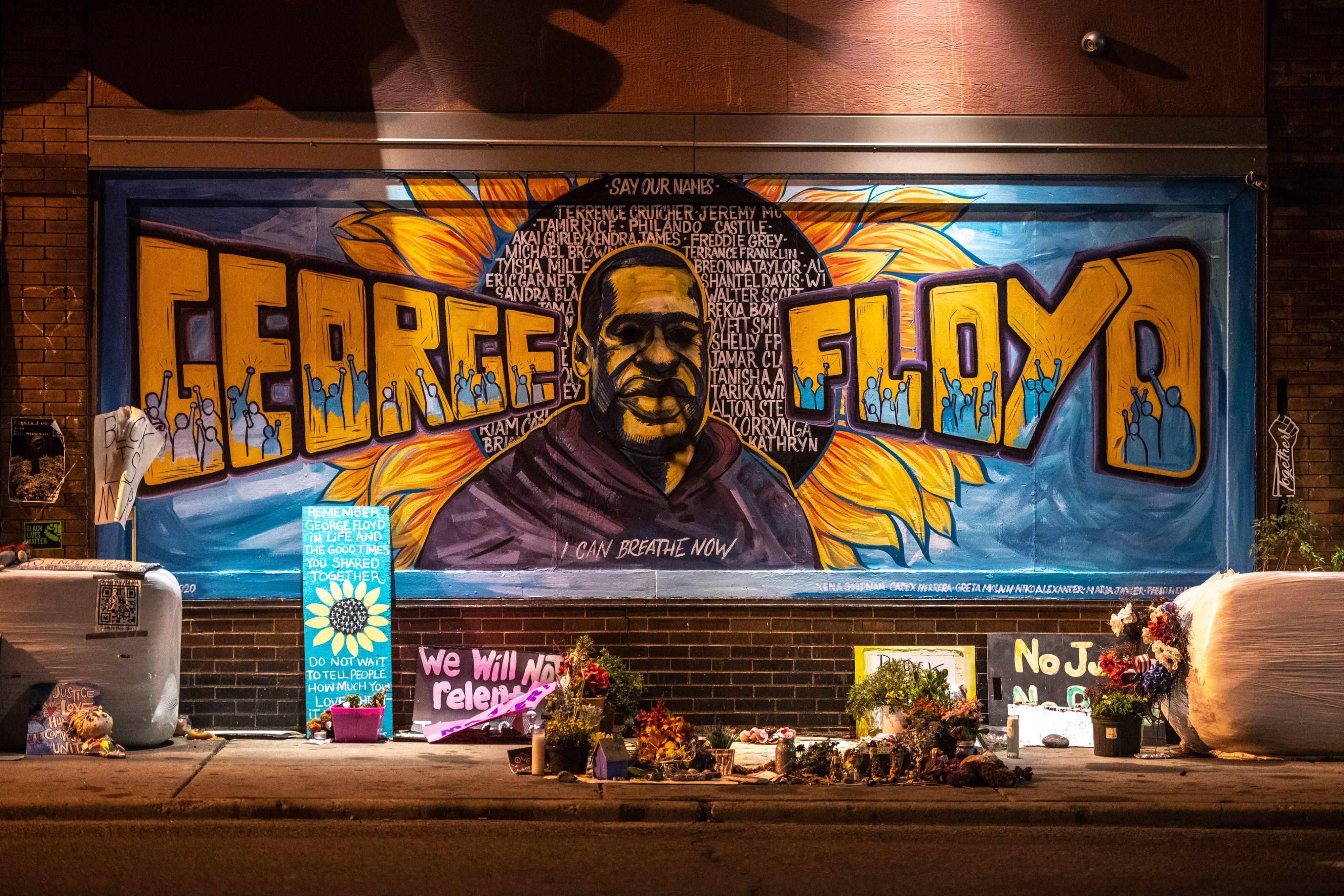
March 7 2021, Updated 7:22 p.m. ET
The death of George Floyd was one of the seminal events of 2020, one that many have seen as a moment that changed the direction of the conversation on racial justice in the United States.
However, while the pictures that went around the globe of officer Derek Chauvin placing his knee on Floyd's neck would seem to suggest an open and shut verdict when the ex-police officer begins next week in Minneapolis, that is far from the case.
On May 25, 2020, police arrested Floyd after he allegedly attempted to pass a fake $20 bill in the Powderhorn Park area of Minneapolis. Four officers became involved in the incident, with the suspect ending up handcuffed and face down in the street. Onlookers began to film the arrest, with Derek Chauvin clearly seen pressing his knee into Floyd's neck. He kept the position for over eight minutes, including after Floyd became motionless and emergency responders arrived.
The death sparked a wave of protests against police brutality across all 50 states that eventually spread worldwide, with many cities seeing significant civil unrest, including Washington D.C.
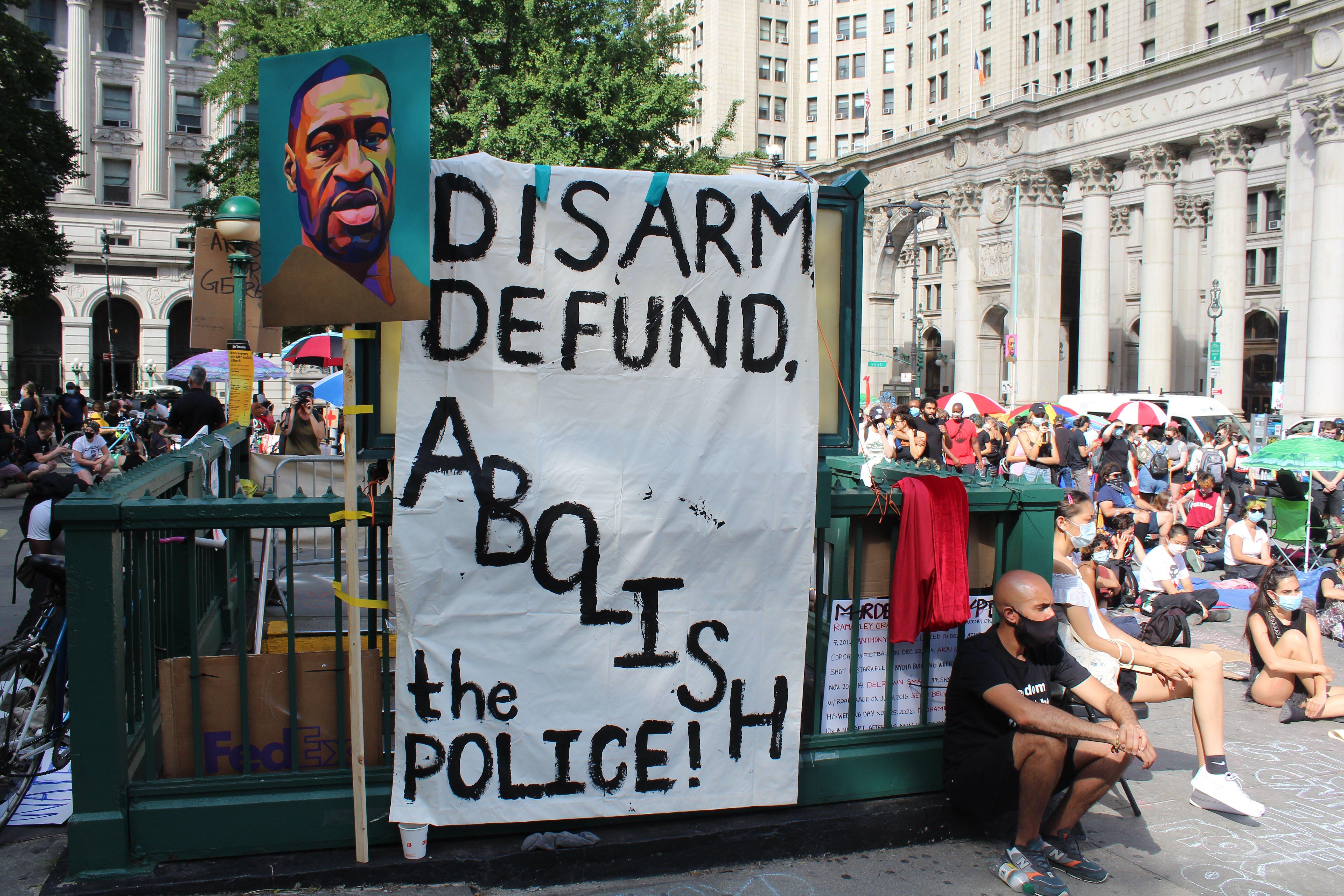
After weeks of protests against police brutality and racial injustice, demonstrators in New York City camp out in front of City Hall to demand a $1 billion in cuts to NYPD's funding ahead of the city's July 1 budget deadline.
Chauvin was arrested and charged with third-degree and second-degree manslaughter four days after Floyd's death; the charge upgraded to second-degree murder in June. The third-degree manslaughter charge was dismissed in October, and Chauvin has pleaded not guilty on the two remaining counts.
The other officers involved have been charged with aiding and abetting second-degree murder.
POTENTIAL FOR UNREST
To be presided over by District Judge Peter Cahill, the trial is expected to be one of the most divisive and controversial since the 2013 trial of George Zimmerman following the fatal shooting of black teenager Trayvon Martin and the specter of civil unrest is hanging over Minneapolis.
Hennepin County Courthouse, Minneapolis City Hall, and the Hennepin County Jail have already been fortified with concrete barriers, barbed wire, and "non-scalable" walls as the city prepares for a negative reaction to a potential acquittal.
Safety and crisis managers in the city have sought to preempt any disturbances, highlighting the potential for a significant amount of disinformation to spread across social media throughout the trial. To combat the issue, Minneapolis had originally intended to enlist "trusted messengers" to share "city-generated and approved messages" across social media, according to the Minnesota Reformer.
The move, aimed at "African American, American Indian, East African, Hmong and Latino/a/x communities," caused a significant backlash. The city was accused of attempting to control the narrative with propaganda.
David Rubedor, the city's Neighborhood and Community Relations Department Director, apologized for the plan during a city council meeting. Rubedor said that Minneapolis was "not trying to change public opinion about any particular message" but instead wished to provide information in a "quickly and in an equitable way."
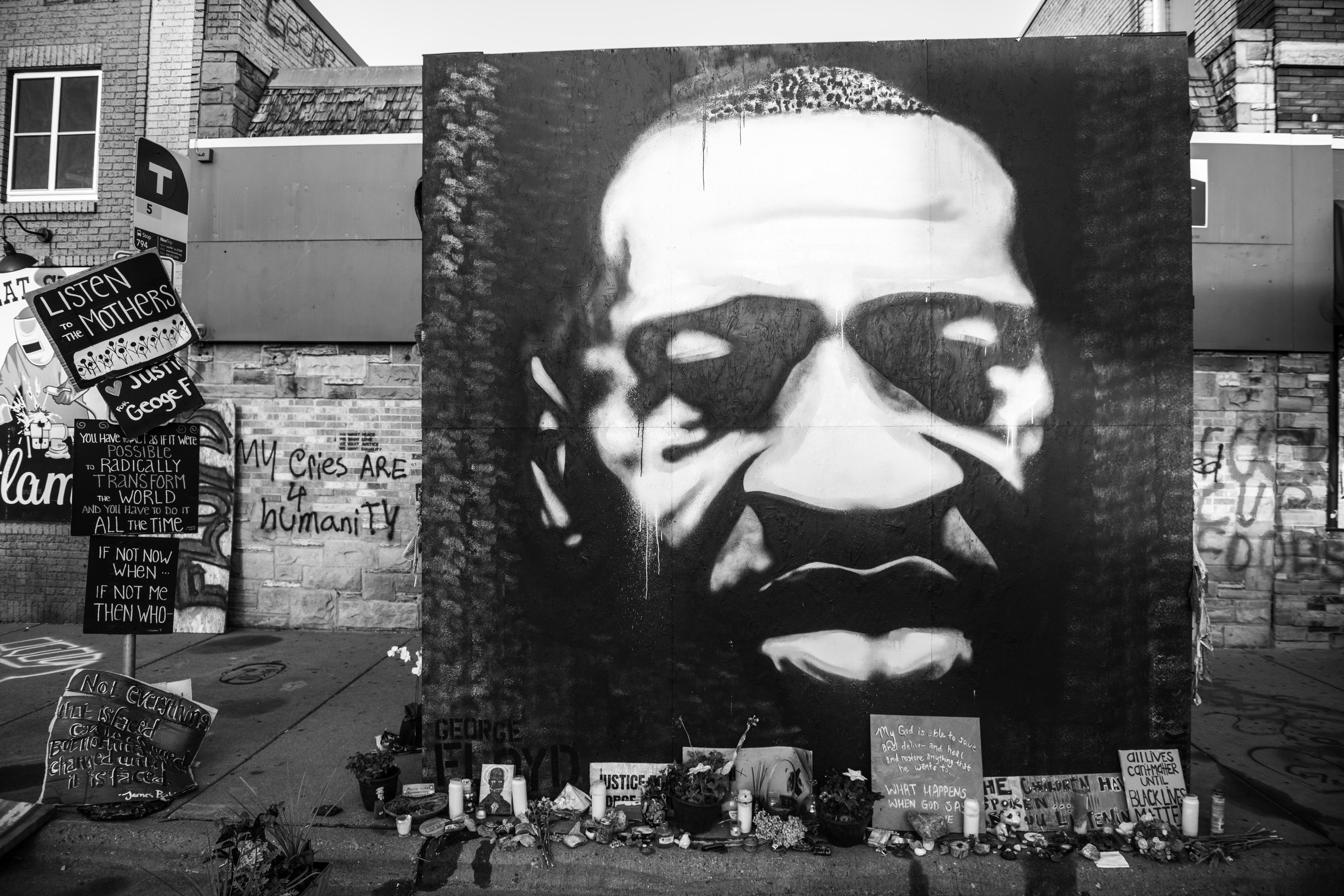
A George Floyd memorial in Minnesota
Local store owners meanwhile have stated that they fear their businesses may be targeted should violent disturbances come to downtown Minneapolis, with community leaders saying they feel a rise in tension across the city.
Critics contend that Mayor Jacob Frey's announcement that both the National Guard and 3,000 officers from across Minnesota will be brought into the city before the verdict has been counterproductive and won't stop protests.
COURSE OF THE TRIAL
The first task awaiting the court will be selecting the jury, a process that can take around three weeks. The final panel will consist of 12 people, with four alternatives offered.
While in a normal court case, those seen as ideal for the jury would be individuals who had no knowledge of the affair. However, this is nearly impossible in proceedings against Chauvin, with the events of last summer being global news.
Instead, attorneys will seek jurors who haven't yet made up their minds about whether the accused is guilty, interviewing jurors individually via a question-and-answer session to determine whether they will be a good fit for selection.
Attorneys on the case will be able to dismiss either through a "for cause strike" or a "peremptory strike," with the former being a "good reason" strike and the latter being a dismissal where attorneys don't need to state the reason. A peremptory strike, for example, may include removal for suspected but unproven racial bias or suspected bias against the police. The defense will be allowed 15 such challenges, the prosecution being allowed nine. Strikes for cause are unlimited.
Any dismissals for reasons of race, ethnicity, or religion are likely to be challenged under the "Batson challenge." While often difficult to prove, this challenge allows the prosecution to counter the defense striking a potential juror should they believe the real reason is, in reality, discriminatory.
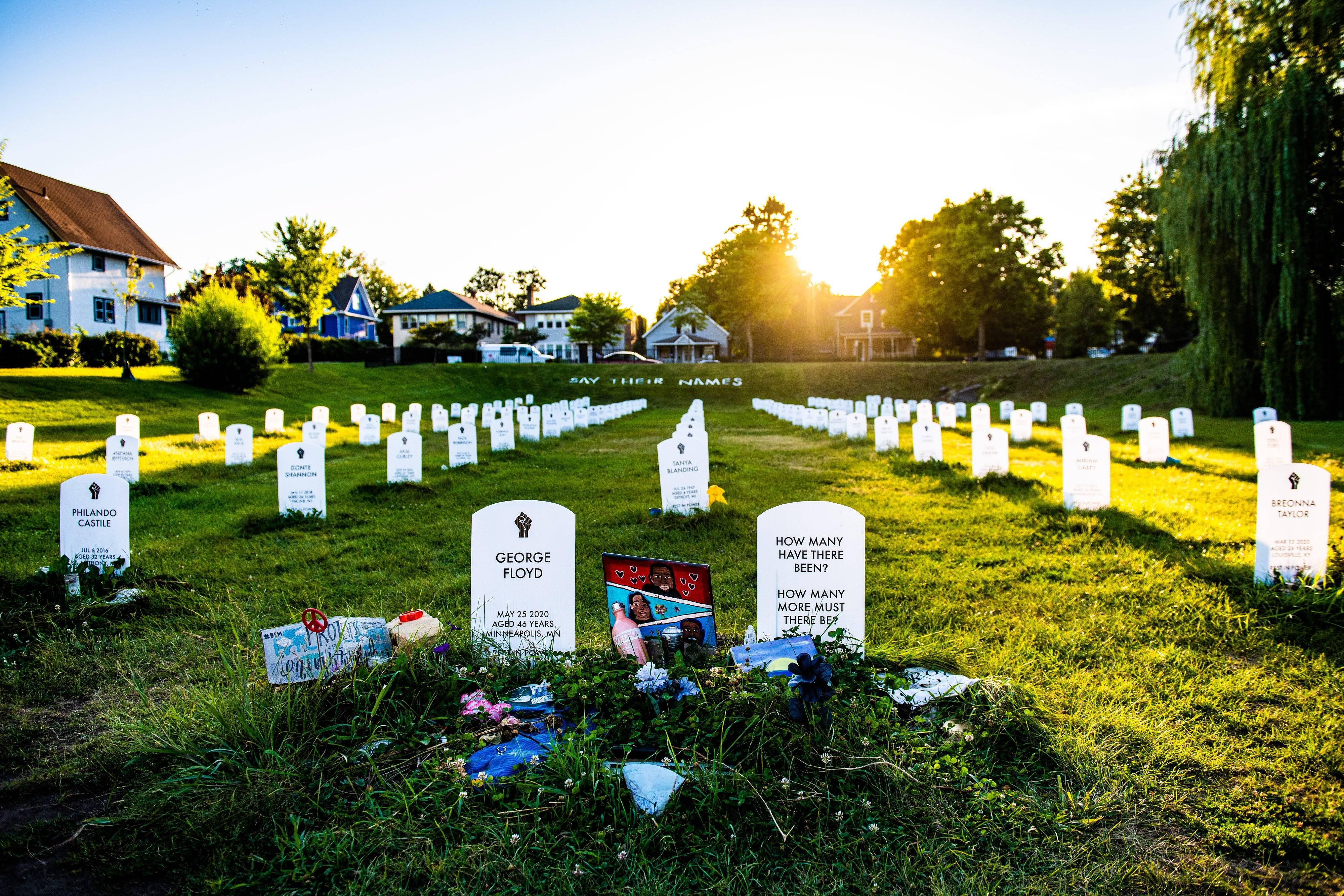
George Floyd Memorial
On March 29, the trial will begin properly on the 18th floor of the Hennepin County Courthouse, and the prosecution and defense will make their opening statements. The court has been specially equipped to deal with the ongoing COVID-19 pandemic. Plexiglass dividers have been installed to reduce the potential for transmission of the virus, with seating effectively socially distanced and hand sanitizer dispensers installed throughout.
Chauvin faces 40-years on the charge of second-degree felony murder and a sentence of up to 10-years on the charge of second-degree manslaughter.
POSSIBLE ARGUMENTS
Chauvin's defense is confident. In August, his attorneys filed to dismiss the charges against their client, claiming that Floyd died through a combination of drug issues and unforeseen preexisting medical conditions. While the motion was rejected by Judge Cahill in October, it perhaps shows the direction of the case for the defense.
The defense will use the county's autopsy as one of their primary pieces of evidence. While the document states that Floyd died as the result of a homicide, it also states that not only did the deceased have heart disease and fentanyl in his system, but he had COVID-19.
Chauvin's attorneys will argue that this unique set of circumstances was what truly led to Floyd’s death, not the actions of their client. They will highlight the report states there was no bruising on Floyd's back or neck.
Prosecutors, meanwhile, will seek to prove that Chauvin's utilization of the technique known as "prone restraint" was illegal. Both federal and state laws generally allow police to use their weight to pin suspects to the sidewalk, allowing more force to be utilized depending on the level of resistance faced. Kneeling on a handcuffed suspect can be permitted in certain circumstances.
However, federal appeals courts have clearly ruled that as soon as a suspect has ceased resistance, the arresting officer must release the hold. Floyd appeared to have stopped breathing several minutes before Chauvin removed his knee from his neck, and the prosecution will allege that the defendant must have known he was putting Floyd at substantial risk.
They will undoubtedly add the context of the deceased's infamous cry of "I can't breathe" alongside other pleas, including the clear "I'm about to die."
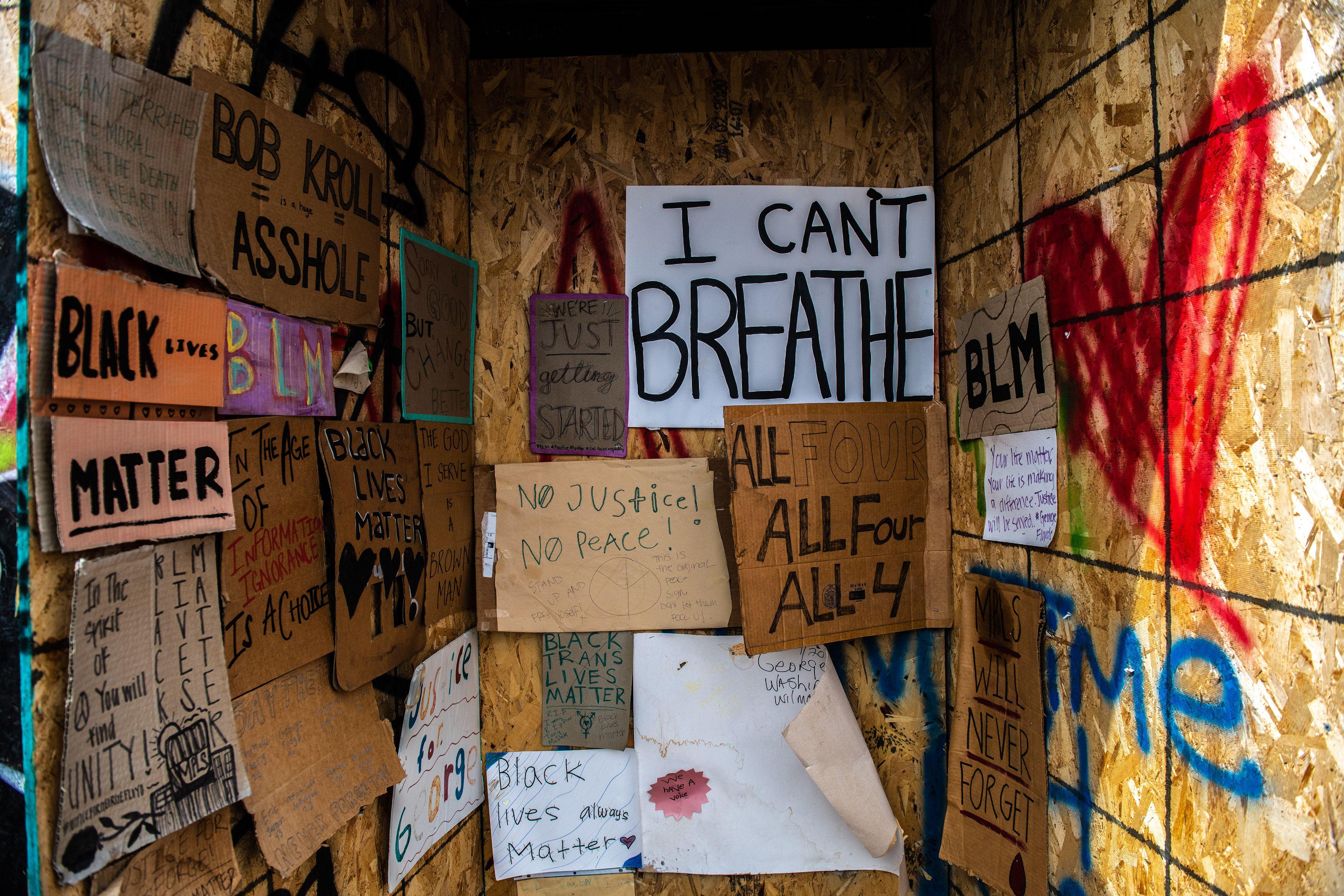
Signs in a makeshift memorial for George Floyd.
The prosecution will argue that, while Minneapolis police allows the move to be used, those circumstances were not met. Floyd was not only not aggressively resisting arrest at the time of his death, but Chauvin failed to remove his knee as required. The autopsy will again be utilized, with the clear medical examiner's statement that Floyd died from "cardiopulmonary arrest complicating law enforcement subdual, restraint, and neck compression" being key. They will use expert witnesses, the video of the incident, and body cam footage.
They are likely to also raise the fact that several metropolitan police departments have banned the move and that there have been dozens of cases where a suspect has died following the utilization of prone restraint, with many civil lawsuits over the methods having been rejected before coming to trial.
On the charge of second-degree murder, they don't need to prove that the killing was intentional. Still, they must prove beyond any reasonable doubt that Chauvin intentionally inflicted harm that resulted in Floyd's death.
THE VERDICT
Those watching the case shouldn't expect a result until late April and even into early May, with experts stating that the trial will last somewhere between four and six weeks. It is worth noting that the jury's decision must be unanimous, and the possibility of a mistrial exists should there be a hung jury. Such a scenario could result in the charges being thrown out or open up a path for Chauvin to agree on a plea deal.
Therefore, attempting to convince just one member of the jury could be a viable scenario for the defense.
In any case, the accused is likely to be facing courtrooms for the foreseeable future. If the jury finds Chauvin guilty, there will undoubtedly be appeals following the verdict. If found innocent, there is the likelihood that federal charges could follow, a possibility that could be even more serious for Chauvin. Under federal law, those found guilty of depriving a victim of their constitutional rights resulting in their death can face the death penalty.
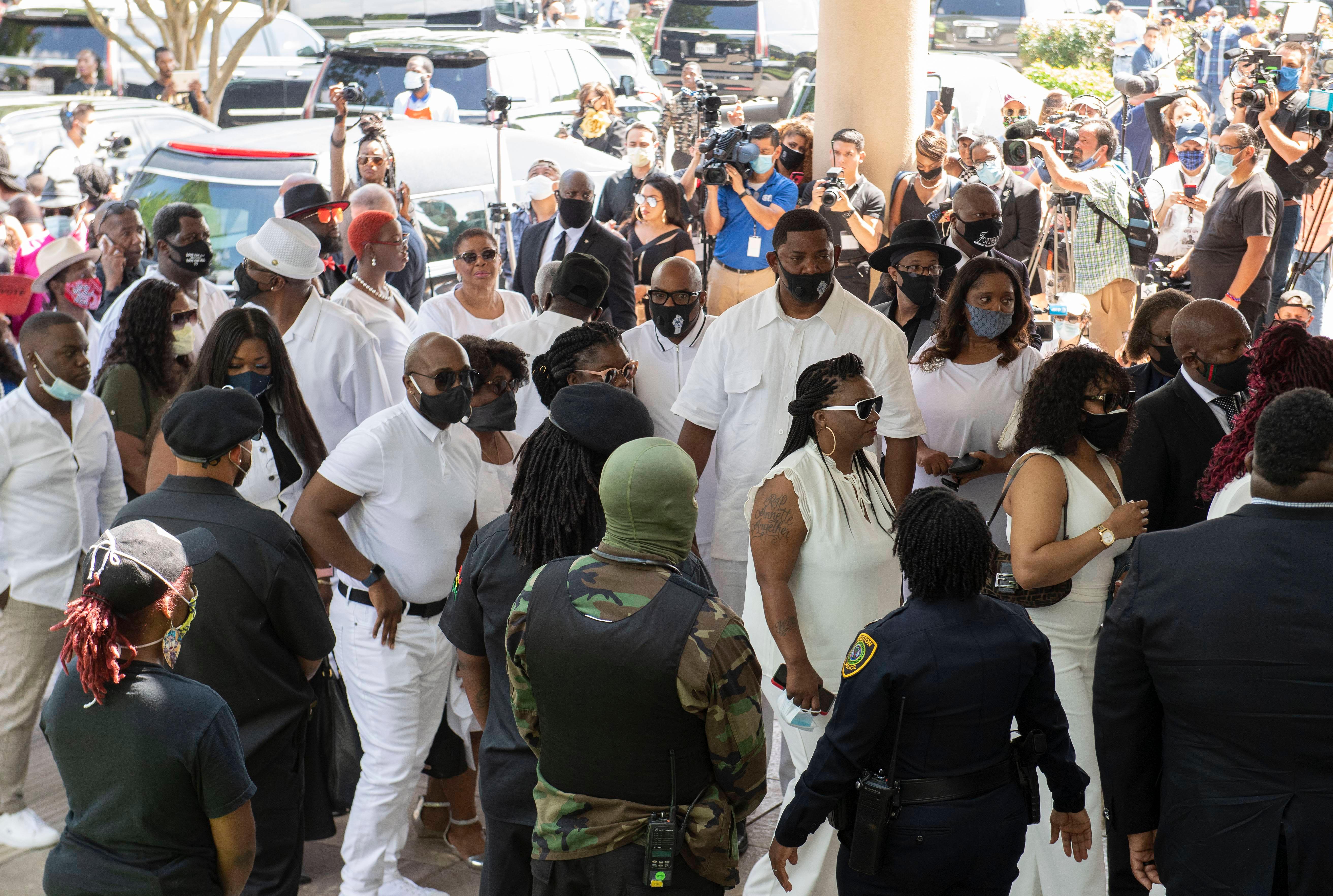
George Floyd funeral service in Houston
Become a Front Page Detective
Sign up to receive breaking
Front Page Detectives
news and exclusive investigations.
